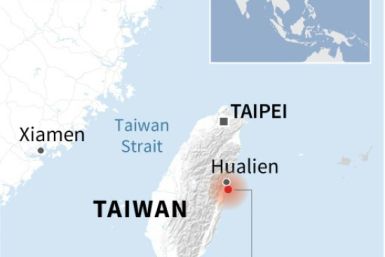Is Indonesia the Next Hot Emerging Market?
Now that Fitch and Moody have upgraded Indonesia's credit rating to an investment grade economy, the future is looking up for economic growth for Southeast Asia's largest economy.
With a credit rating now matching India's, Indonesia's poor infrastructure, overloaded roads, government corruption and bureaucracy were among the problems Fitch and other economists pointed out as problems needing work. However, if Indonesia fixes the roads by investing in infrastructure, it may not be able to maintain the debt-to-gross domestic product ratio that led to Moody's decision to upgrade their credit rating in the first place.
For this reason, attracting investors to build new infrastructure is one of the government's top priorities. Recently, Indonesia passed a bill to speed up land acquisition and give a tax break to investors helping build roads, bridges and ports or invest in base metals and petrochemicals.
The credit upgrades will also decrease the country's borrowing costs to build at a time when more developed economies have been downgraded because of their countries' debt. Indonesia has steadily reduced its debt in the past decade to around 25 per cent of gross domestic product (GDP).
Last year's record 18% rise in foreign direct investment (FDI) or close to 20 billion US helped reduce the debt as global investors took advantage of the growing demand for resources from the world's top exporter of thermal coal and tin.
So far, Asian firms, especially from Singapore and South Korea, have led in the direct investment. Japan, China and India have all made big commitments with investments in telecommunications, transport and mining from firms including auto giant Toyota and South Korean steelmaker Posco. Car sales are at a record high, but roads are jammed.
"The FDI sectors that will enjoy high growth would be those which are consumption related, such as automotives, cement, retail banking and pharmacy," said Fauzi Ichsan, senior economist for Standard Chartered Bank in Jakarta.
A brochure from BKPM the Indonesia Investment Coordinating Board entitled "Invest in Remarkable Indonesia" gives the following points to consider for investing in Indonesia's economy.
Number one on the list of reasons is labor costs as illustrated by a graph comparing rates of wages per US dollar per hour. Indonesia's rate per hour is the lowest at $.60 per hour with Malaysia's being the highest at $2.88 per hour. The rest of the hourly rates on the graph include $2.11 per hour in China, $1.63 in Thailand, $1.04 in Philippines and $1.03 in India.
The brochure also claims it was third behind India and China in continued economic growth during the Global Financial Crisis at 4.5%. With the fourth largest population in the world and over half of the population being under the age of 29, Indonesia can not only claim a large workforce as a natural resource but also oil, tin and renewable geothermal energy resources.
The only other major agency that has not upgraded Indonesia, S&P, now rates the country at the highest non-investment level but is expected to follow suit by finance ministry officials. Trade Minister Gita Wirjawan predicts the country could achieve an 'A' grade rating by 2014.
The article was first published by BlogOfAsia. All rights reserved. Blog Of Asia © is a website providing various information related to the continent of Asia, such as: current news, culture, travel, business opportunities and living experiences.






